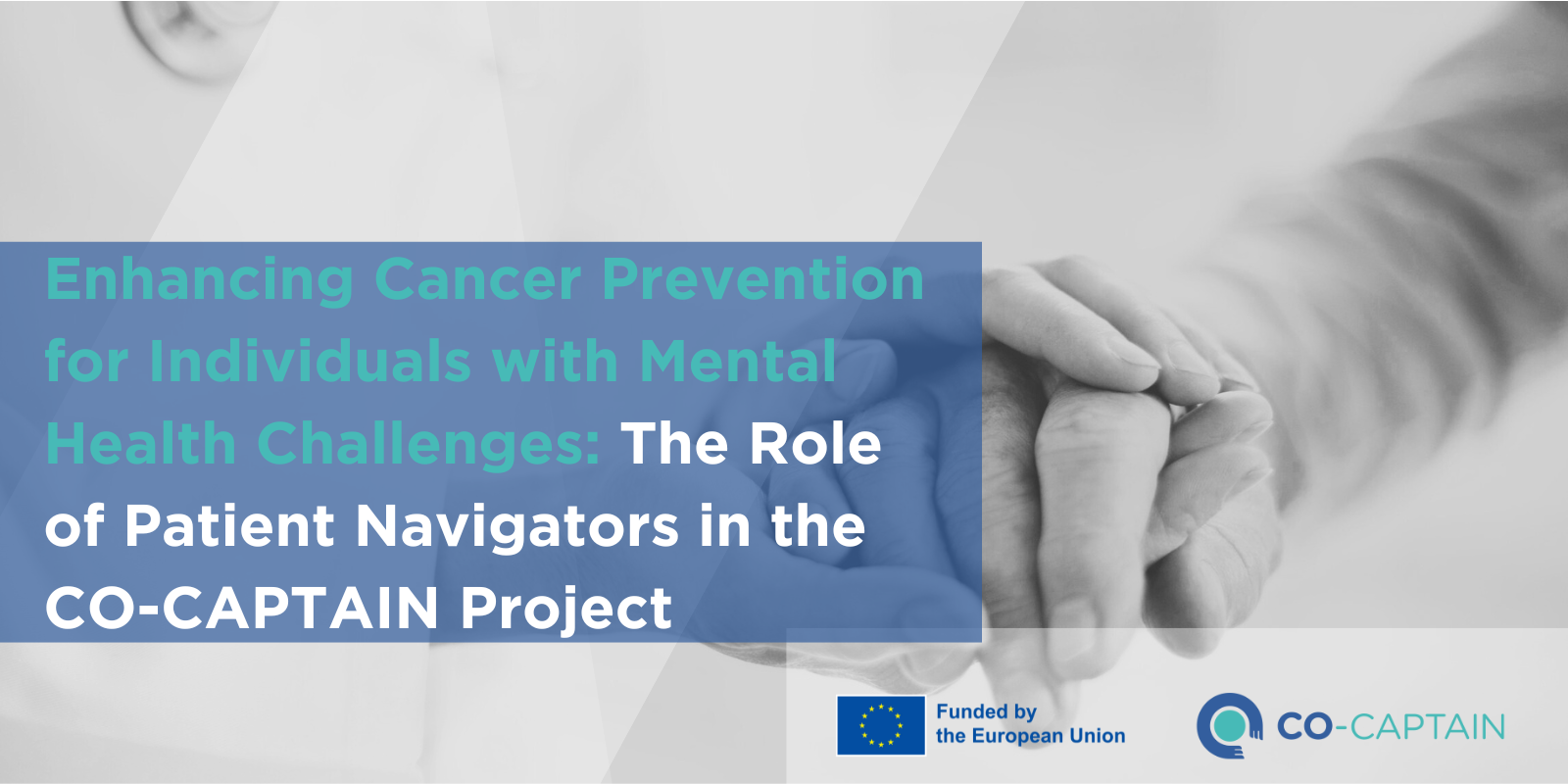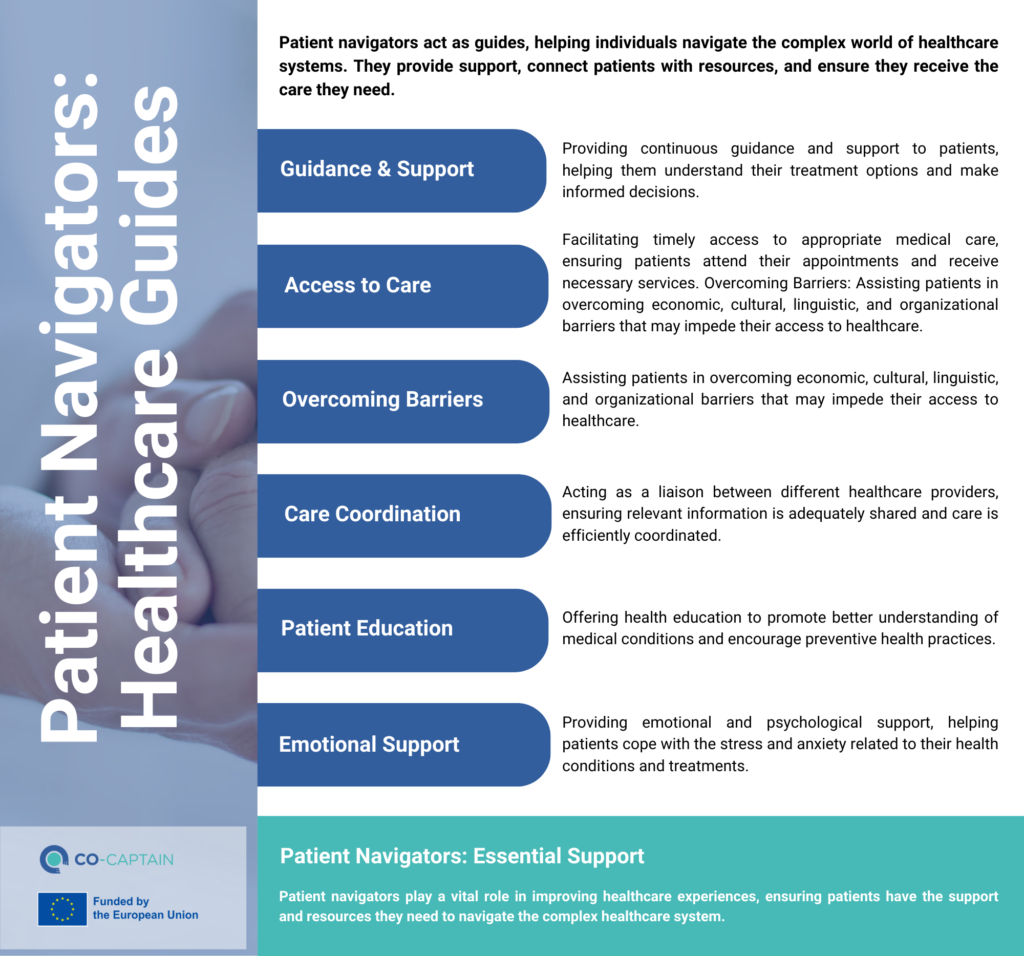In 2019, The Lancet Psychiatry Commission highlighted a critical issue: «the poor physical health of people with mental illness is a multifaceted, transdiagnostic, and global problem» (Steptoe and Fancourt, 2019). The Commission noted that individuals with mental health problems have a lower life expectancy compared to those without, partly due to «poor clinical management,» and warned that this gap may be widening even in high-income countries. To address this largely unmet need, the Commission proposed integrating physical and mental healthcare.
At the European level, the ongoing CO-CAPTAIN project is pioneering efforts to address cancer prevention within this population by integrating patient navigators into health and social care systems. These navigators aim to facilitate access to adequate cancer preventive services in local communities for people with mental health problems. Patient Navigation (PN) has been shown to reduce inequalities and mitigate barriers at systemic, provider, and individual levels across various healthcare systems. Existing evidence demonstrates that patient navigators can contribute to improving access and continuity of care, offering a promising approach for better integration of care.
CO-CAPTAIN is dedicated to providing evidence-based, person-centred navigation to address cancer care disparities and facilitate primary prevention access, targeting known risk factors such as smoking and overweight in individuals with health mental problems. The project aims to identify barriers and facilitators to primary cancer prevention with key stakeholders, including patients, caregivers, care team members, representatives of mental health organizations, or service managers, but outreaching the whole society. Patient Navigation has potential applicability across the cancer care continuum, but further research is needed to identify current bottlenecks and barriers that might influence the implementation of PN’s primary cancer prevention programs for individuals with mental health issues in different healthcare systems across the EU.
In order to adapt the features of Patient Navigation for primary cancer prevention to the specific needs of people with mental health problems, the CO-CAPTAIN project will identify implementation strategies for local communities in the 4 pilot sites: Austria, Greece, Poland and Spain. These implementation strategies will focus on ensuring that Patient Navigation is effective and tailored to the specific needs of individuals, contributing to improving the accessibility and quality of cancer prevention services in Europe.
In a scenario where integrated health care and equity in access to health services are imperative, patient navigators emerge as silent heroes in the CO-CAPTAIN project. Their tireless work and commitment to improving the health of people with mental health problems are key pillars in building a more inclusive and effective healthcare system. Through their expert guidance, emotional support and overcoming obstacles, patient navigators not only open doors to cancer prevention, but also pave the way to a healthier and more equitable future for all.








